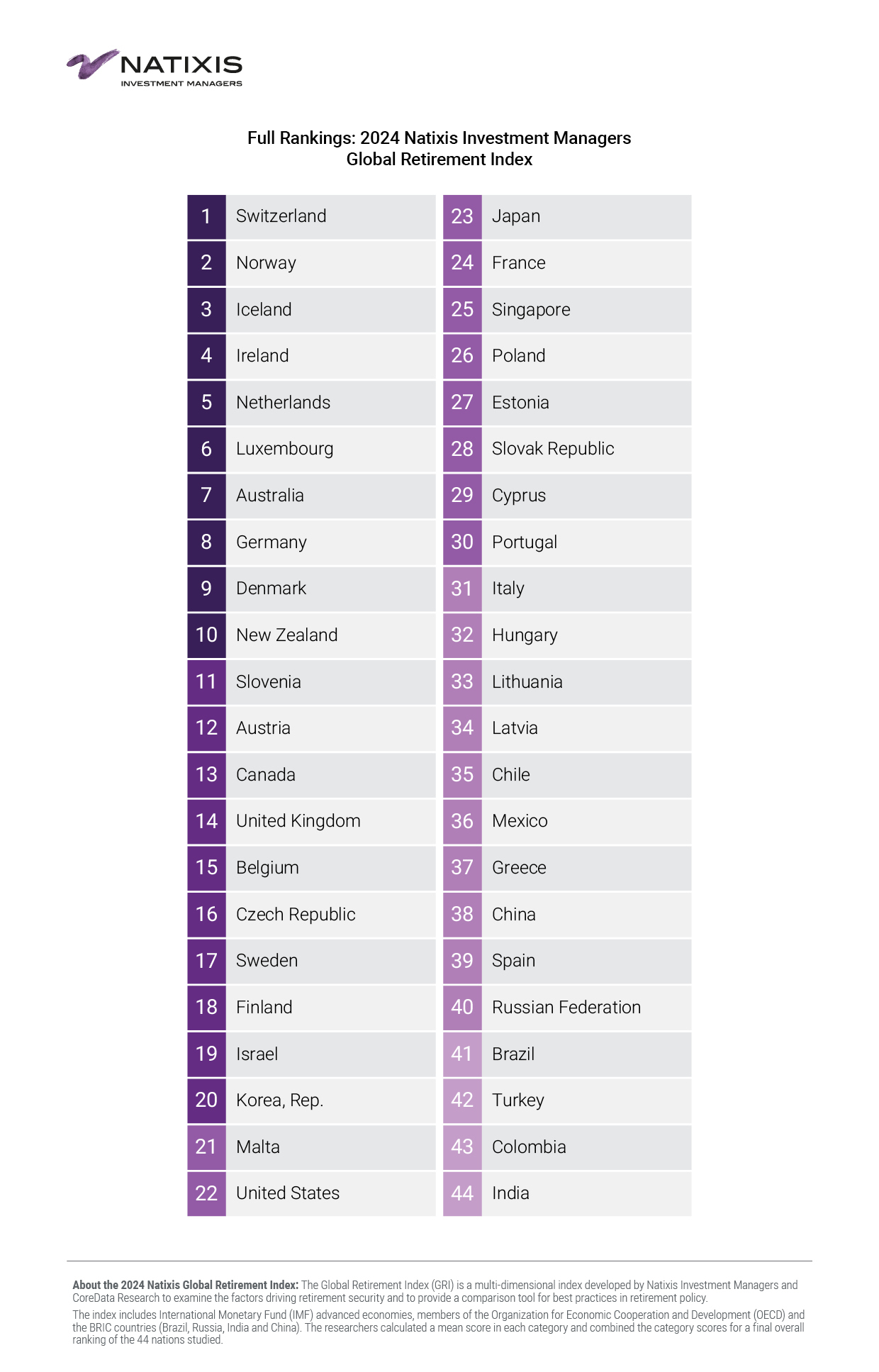

A global analysis of key factors that drive retirement security has seen the United States slip down the rankings in 2024.
The Global Retirement Index from Natixis Investment Managers shows that the US is now 22nd overall, down from 20th in 2023, as the material wellbeing element weighs on overall resilience of the country’s retirement landscape, mostly due to a rise in unemployment. There is also a decline in the happiness sub-index.
In the finance sub-index, the US ranks 15th and the report states that the US has little to no change in rankings due to improvements in tax pressure, interest rates, bank non-performing loans, and old age dependency, driven in part by the Federal Reserve's decision to maintain interest rates to combat inflation, with potential rate cuts expected later in the year.
However, the United States is leading all other countries in GDP growth at 2.5%, driven by an influx of immigration.
Globally, the study shows a stabilizing retirement outlook but it notes that individuals are feeling the pressure as more come to the realization that they are on their own when it comes to funding income later in life.
“Globally, we’ve seen a consistent set of results in this year’s index, though there is room for improvement to be made for most,” said Dave Goodsell, executive director of the Natixis Center for Investor Insight. “The United States continues to experience a ‘good news/bad news’ scenario for retirement security, with inflation slowly returning to normal while unemployment and public debt levels rise.”
The report was created in collaboration with Core Data Research.
Natixis IM’s Global Survey of Individual Investors found that 27% of respondents said that even if they saved $1 million, they still couldn’t afford to retire – that includes 24% of those who have already accumulated $1 million.
It also highlighted four key risks for individuals: interest rates, inflation, public debt, and investors themselves not making reasonable assumptions and realistic goals.
“As individuals increasingly take charge of their retirement planning amidst these challenges, financial service providers must become more proactive in supporting them,” Liana Magner, Executive Vice President and Head of Retirement and Institutional in the U.S. for Natixis Investment Managers. "To prevent future crises, it's crucial to offer personalized solutions that address both the current economic landscape and individuals’ specific retirement needs, including access to both public and private markets.”


Rajesh Markan earlier this year pleaded guilty to one count of criminal fraud related to his sale of fake investments to 10 clients totaling $2.9 million.

From building trust to steering through emotions and responding to client challenges, new advisors need human skills to shape the future of the advice industry.

"The outcome is correct, but it's disappointing that FINRA had ample opportunity to investigate the merits of clients' allegations in these claims, including the testimony in the three investor arbitrations with hearings," Jeff Erez, a plaintiff's attorney representing a large portion of the Stifel clients, said.

Chair also praised the passage of stablecoin legislation this week.

Maridea Wealth Management's deal in Chicago, Illinois is its first after securing a strategic investment in April.
Orion's Tom Wilson on delivering coordinated, high-touch service in a world where returns alone no longer set you apart.
Barely a decade old, registered index-linked annuities have quickly surged in popularity, thanks to their unique blend of protection and growth potential—an appealing option for investors looking to chart a steadier course through today's choppy market waters, says Myles Lambert, Brighthouse Financial.
